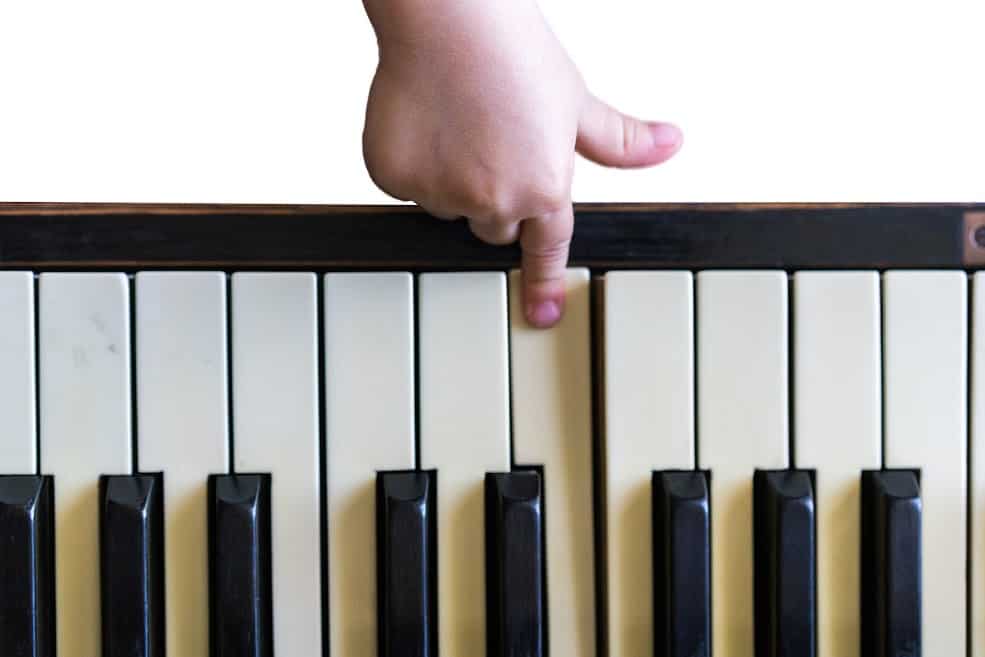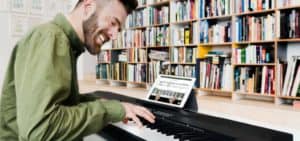Latest News
Piano Lessons Might Be the Perfect Gift for Your Loved One with Autism

The piano is one of the oldest and most cherished musical instruments of all time. Invented in the 1600s, this instrument has captivated many young and old people fond of music and life.
Whether you are a lover of the classic big pianos sitting beside your sofa in the living room or you simply love the portable keyboard, the passion is similar.
Ever since Cody Lee jumped on the stage of Americas Got Talent and showed everyone what winning looks like, despite his blindness and autism, many people have taken inspiration from him and started to hire private piano lessons in Atlanta to help their child with autism.
It is a fact that music does help children with disabilities especially autism. If your child is suffering from autism, then the piano might be the support and best friend that they need.
ADHD kids have a natural attachment and talent for the piano. The only problem is that it has not been identified as much as it should have. The musical ability and the ability to learn everything thoroughly is what all kids with ADHD, Autism, down’s, Asperger’s syndrome, and Dyslexia have.
More parents and instructors with special needs children are starting to understand the extraordinary link between music and autism. Evidence has found that when autistic children engage consistently with music, their actions and cognitive abilities increase.
Before we discuss the benefits of piano and music for children with autism, let’s discuss what autism actually is and its impact on people.
Autism and Children
Autism is an intangible disorder, but it also affects the growth and learning of infants. Children with autism have many disabilities: hypersensitivity, atony, apraxia, lack of focus, lack of body schema. It takes a thorough understanding of their condition to educate them.
The vocabulary of music influences them more profoundly and more quickly than any other. And while autism is a contentious topic on several levels, experts overwhelmingly stress the artistic affinities and talents of autistic persons.
Connection between Autism and Children
Within the earliest autism studies going back to 1943, there are numerous references to autistic children’s musical abilities and curiosity. Since then, hundreds of research has been done that specifically demonstrate a close correlation between music and autism.
While individuals with autism are slower to learn verbal communication skills, research shows that they can actually interpret and comprehend music almost as well, if not better, than their peers.
In particular, autistic children have proved advanced skills in pitch classification, memorizing of melodies, and labeling of emotions in music. Private piano lessons in Atlanta have proved to be extremely useful for these children.
Benefits of Music on Children with Autism
While children with autism sometimes have a rough time interacting with others, there is research that shows that they can interpret and comprehend music almost as well, if not better, than their peers without autism. There are so many ways music can benefit children with autism.
Here are some added benefits of music on children with autism
Enhanced and Improved Verbal Communication
Depending on where an individual sits on the autism continuum, expressive contact may be one of the biggest challenges they encounter. Music has been found to enhance children with autism vocalization, verbalization, and comprehension, and also to enable them to learn to communicate their feelings better.
Understanding of Different Behaviors
Studies also found that music activates the sensory and motor areas of the brain, allowing individuals with autism to recognize and follow spoken orders and instructions. Music has also been shown to reduce harmful behaviors such as violence and tantrums in all adolescents.
Allows Them to Develop Social Skills
The study has shown that music can help children with autism to participate more with their contemporaries in a social environment. One research found that music enabled children on the autism spectrum to communicate more directly with other children and allowed them to grasp things such as sharing and taking turns.
Helps in Cognitive Development
Teachers often use music as a way to improve cognitive development in schools for special needs of children, because the rhythmic patterns of music help children with autism to learn and organize auditory information. This should enable them to develop their memory and capacity to understand regular routines, as well as their attention span, in certain situations.
Allows Them to Be More Expressive with Emotions
Autistic children are more likely to experience fear and anger than children with disabilities. Upon being exposed to music, children on the autism spectrum displayed none of these feelings, perhaps attributed to the soothing, familiar movements of classical music.

How to Introduce Music to Autistic Children?
Music therapy is comparable to physical therapy in that the therapist assesses the patient and offers a personalized recovery program focused on his or her needs. You can conveniently search online for a Licensed Music Therapist in your city.
An easier and sometimes cheaper choice is to sign up for free, in-home music lessons for your child. With several resources available online, it’s not challenging to locate a trained instructor that has experience dealing with special needs students.
Bear in mind that each method performs better when performed consistently over longer periods of time. Overall, research shows that having music a regular part of your child’s routine would not only be an enjoyable experience but a path to reaching their maximum potential.
Conclusion
Autism and music have a long connection and many children across the globe have taken advantage of this connection to improve their life with a disability. If you have an autistic person at home, it is important that you allow them to explore the wonderful world of music. The piano is one of the oldest instruments ever has made this possible for many children across the globe.
Even without a disability, it is important that you understand the wondrous world of piano and learn a new skill before the time runs out and you have nothing to explain and tell people in your memory list.
Sebastian was born and raised in the busy city of Abbottabad. As a journalist, Saad Mushtaq has contributed to many online publications including the PAK Today and the Huffing Post. In regards to academics, Saad Mushtaq earned a degree in business from the Abbottabad UST, Havelian. Saad Mushtaq follows the money and covers all aspects of emerging tech here at The Hear Up.Thanks










